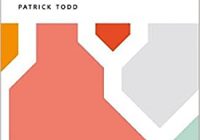The Metaphysical Muddles of Molinism – Some Thoughts on MacGregor (Part 1)
As part of my ongoing research for my book project on Open Theism (under contract with Cambridge Univ. Press), I’ve recently begun reading Kirk MacGregor’s latest book, Molinist Philosophical and Theological Ventures (2022). I’m looking at the book because he addresses some aspects of an anti-Molinist argument that I’ve been developing over the past few… Read More »
